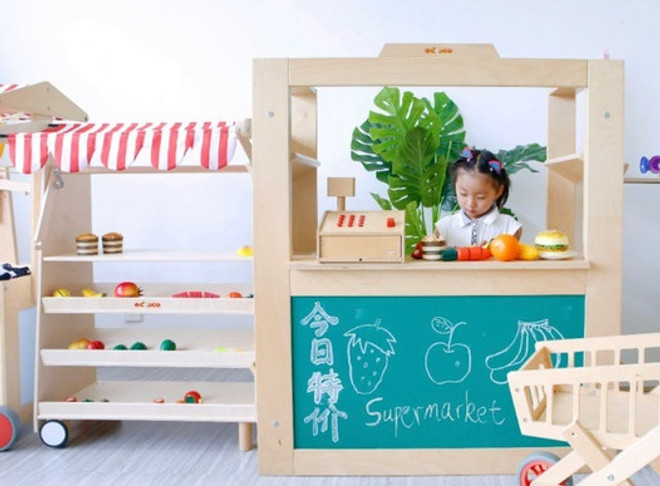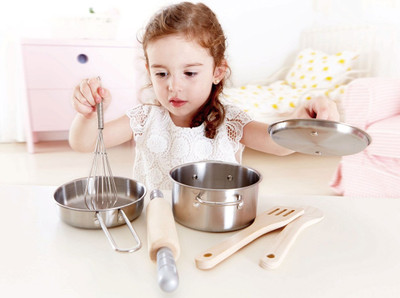Learning Through Everyday Routines
Sep 18, 2025
Many parents think learning happens only when kids sit down with a book, take part in structured lessons, or have purposeful play. But some of the richest learning actually takes place in the flow of ordinary days. From cooking dinner to folding laundry to walking to the park, everyday routines are full of opportunities to help children build skills, independence, and confidence.
By turning daily moments into playful learning, you strengthen your child’s development and deepen your connection with them.
Language in Daily Life
Talking is one of the simplest and most powerful ways to build your child’s learning. Everyday routines naturally offer countless opportunities for language growth.
- Narrate what you are doing: “I’m peeling this carrot, it’s orange and crunchy.”
- Ask simple questions: “Should we use the red cup or the blue cup?”
- Add songs or rhymes to routines like bath time or car rides.
- Describe feelings and actions. Say things like, “You look excited while building that tower” or “I feel tired after walking,” to model emotional vocabulary and self-expression.
Puppets can also bring language to life. A Folkmanis Puppet, for example, can spark conversations, encourage storytelling, and help shy children express themselves.
The Raising Children Network explains that everyday talking and listening with children is one of the most effective ways to build their conversation skills and support language development.

Practical Life Skills
Young children love helping out with real-life tasks. Involving them in chores is not just about getting jobs done, it is a way of teaching independence, coordination, and responsibility.
- Invite your child to pour their own drink from a small jug.
- Let them help set the table, matching plates and cutlery.
- Encourage dressing themselves, even if socks end up mismatched.
Montessori-inspired tools make these activities easier for small hands. Child-sized kitchen sets allow kids to practise safely while boosting confidence. These everyday “lessons” teach children that they are capable, which builds resilience and self-esteem.

Maths on the Go
Maths is everywhere when you know where to look. Everyday chores and errands can double as playful number lessons.
- Count apples as you place them in a basket at the grocery store.
- Sort laundry by colour or size.
- Measure flour and sugar when baking together.
- Spot and read numbers on letterboxes or bus stops during walks.
- Compare sizes while cooking, such as “Which spoon is bigger?” or “Which bowl is smaller?”
- Talk about time when setting timers for baking or brushing teeth.
- Match pairs of shoes, socks, or gloves to practise early grouping skills.

Imaginative Play in Routines
Children often imitate the world around them through pretend play. A child who helps at the supermarket may later set up a “shop” at home with toy food and a basket. Helping with tea time might inspire them to host a tea party for dolls or teddies.
Pretend play builds social skills, problem-solving, and creativity. A wooden tea set invites children to re-create family routines in playful ways, deepening their understanding of the world.
According to Early Childhood Australia, routines are powerful because they offer both predictability and opportunities for imagination. They give children a sense of security while also inviting them to experiment and role-play.
Building Connection Through Routines
While routines can teach language, maths, and independence, their deepest value is in the connection they create. When parents welcome children into these everyday moments, they send a powerful message: “You belong here, and what you do matters.”
- Find joy in the small things. Share laughter while folding clothes or singing together while tidying up.
- Celebrate effort. Offer encouragement when they try something new, no matter how small the step.
- Practise patience. Accept that tasks may take longer with little helpers, and remember that the goal is the process, not perfection.
These everyday acts transform ordinary chores into moments of togetherness. Over time, they strengthen family bonds, nurture confidence, and build the resilience children carry into every part of their lives.
Parents don’t need to turn every moment into a lesson. Life is busy, and sometimes routines are simply about getting things done. The key is to choose one or two parts of your day where you can slow down and invite your child to join you.
Maybe it’s cooking dinner together a few nights a week. Maybe it’s turning bath time into a playful chat. Small steps are enough. Focus on connection, not perfection.
When we see daily routines as learning opportunities, we open the door to skills that last a lifetime.


